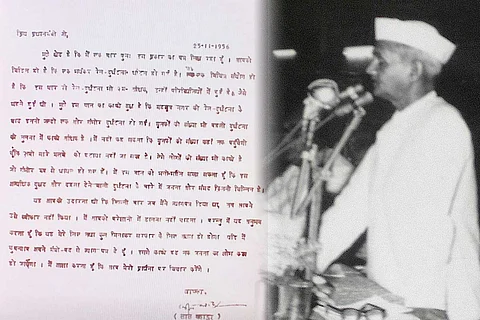

Demands of resignation of India's Railway Minister Ashwini Vaishnaw have risen, after one of India’s most disastrous rail tragedies in many years took place in Odisha on June 2, killing at least 270 people and injuring 900 others. Many bodies are still trapped inside the derailed trains. The government concentrates only on luxury trains, neglecting the trains and tracks of common people, Communist Party of India (CPI) MP Binoy Viswam alleged on Twitter. “Orissa deaths are the result of it. Rail minister should resign,” he said.
Such a resignation is not without its precedents. Twice in 1956, Lal Bahadur Shastri offered to resign as the Railway Minister of India. Both times he wished to take responsibility for major rail accidents that ended with more than hundred people dying. The first time, in August, after an accident in Andhra Pradesh killed 112 people, Shastri offered to resign but Prime Minister Jawaharlal Nehru did not accept it. The second time, in November, another terrible accident in Tamil Nadu left 144 people dead, and this time Nehru let Shastri resign, reluctantly. It was to set an example, Nehru said then, to say that they would not carry on as if they were not affected by it.
Shastri had wanted to ‘quietly quit’ his office, he wrote in his resignation letter of November 1956. He was not to be persuaded a second time to withdraw his resignation.
1956 :: Resignation Letter of Railway Minister Shri Lal Bahadur Shastri After Ariyalur Train Accident
— indianhistorypics (@IndiaHistorypic) June 2, 2023
( Photo - PM Museum ) pic.twitter.com/LuNGxDa88G
Railway ministers offering their resignation after catastrophic mishaps has been a practice in independent India for decades. After Shastri, Railway Ministers of various political fronts have offered resignation, taking responsibility for train accidents that happened in their reign. However, only two have quit their post, after their resignations were accepted, in all this time. Other than Shastri, only Nitish Kumar has resigned as Railway Minister, taking responsibility for a major train accident in Assam in the year 1999, that killed 290 people.
In 2000, Mamata Banerjee offered to resign twice, once over a hike in oil price, and the second time for a rail disaster that left 43 people dead and 100 others injured. She was part of the NDA government at the time, and Prime Minister Atal Bihari Vajpayee rejected her resignation.
After Prime Minister Narendra Modi came to power the first time, his Railway Minister Suresh Prabhu too had offered to quit in 2017, following a series of train accidents. One of the worst accidents happened in 2016 when 14 coaches of the Patna Indore Express derailed near Kanpur, killing 150 people. Suresh Prabhu's resignation was not accepted at the time, but he was moved to the Ministry of Commerce and Industry, and replaced by Piyush Goyal.